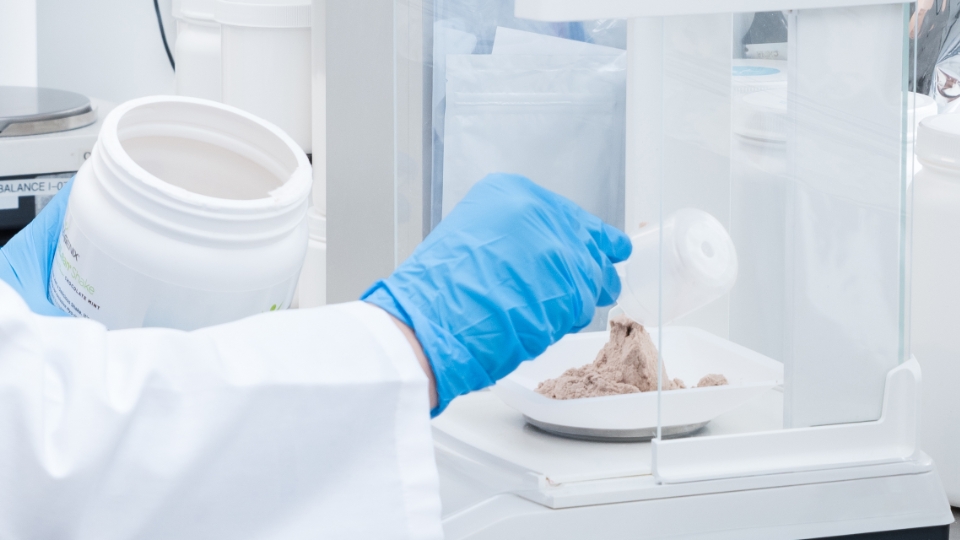Should you use Isagenix products if you have diabetes? It’s a frequently asked question. Our answer: Talk with your doctor. It’s our general recommendation that people with diabetes or any kind of medical condition speak with their doctors before starting any Isagenix System, modifying their diet, or changing their lifestyle. To be clear, Isagenix offers meal replacements and nutritional supplements, not medications. No information used in the promotion of our products should be misinterpreted as medical advice.
For those with diabetes, we do understand that Isagenix products can certainly be used as tools to help support your diet and lifestyle goals. Because we receive regular questions concerning this topic, we have put together this list of five reasons why it’s important to talk to your doctor first if you have diabetes. This list of reasons is intended to help you get the conversation started with your healthcare professional.
1. Diabetes is highly individual.
Diabetes is a complex group of conditions with a variety of different causes—it’s not just one disease. Because diabetes is specific to each individual, treatment can vary from patient to patient. If you’re interested in finding out if Isagenix can work for you, it’s important to discuss your options with your doctor. By starting the conversation, you can discuss how to fit Isagenix into your personalized plan.
See: Talking to Doctors and Other Health Professionals About Isagenix
2. Any time you make a significant change in your meal plan, you may need to adjust the way you manage your blood glucose.
For most people, starting an Isagenix 30-Day Cleansing and Fat Burning System represents a significant change in diet. For example, IsaLean® Shake is a balanced 240-calorie, low-glycemic meal replacement that provides 24 grams of high-quality protein, 24 grams of carbohydrate, and 5 grams of fat. Compared to many typical meals, IsaLean Shake has fewer calories and provides a more balanced proportion of nutrients.
Depending on how you manage your blood glucose, starting an Isagenix System might require some adjustments with the help of your healthcare professional. For example, some medications that are used to control blood glucose levels are balanced according to the amount of carbohydrate you eat. You should talk with your doctor and be aware of how these medications are affected by your diet and exercise habits to ensure you have a successful experience.
3. Weight loss can help some people better manage their blood glucose.
Often, people with diabetes can see health benefits from weight loss. Because weight loss can improve blood glucose control, blood pressure, and blood lipid levels for some individuals with diabetes, the American Diabetes Association recommends weight loss for people who are overweight or obese as part of the Standards of Medical Care in Diabetes (1). The American Diabetes Association’s clinical guidelines also emphasize that no specific diet is ideal for all people with diabetes. This is another important reason why you should talk to your doctor before you start an Isagenix System. You should find out if your doctor feels that weight loss is appropriate for you and discuss how to adapt an Isagenix System to fit your individual weight-loss needs.
4. Individualize your protein intake.
The American Diabetes Association’s nutritional guidelines recommend individualizing protein goals for people with diabetes. Some research suggests that there may be a benefit to eating a bit more protein for people with type 2 diabetes. This is because adding extra protein to a meal can increase your body’s insulin response without increasing blood glucose levels (2). However, the scientific evidence regarding higher protein diets for people with diabetes and factors like blood glucose control is mixed, suggesting that not everyone with diabetes can experience the same benefit from extra protein.
5. If Cleanse Days are right for you, have a plan in place to manage your blood glucose.
An Isagenix Cleanse Day is a nutritionally supported fast that involves abstaining from virtually all food for a period of one or two days per week. Scientific research supports the benefits of Cleanse Days, also referred to as intermittent fasting, for improving health. Some of the benefits that have been associated with Cleanse Days include weight loss, reduced body fat, reduced visceral fat, and improved insulin sensitivity (3-5). However, Cleanse Days have not been studied in people with diabetes, so it’s unclear whether Cleanse Days are helpful for this group of people. Speak with your doctor about whether it’s appropriate for you to try Cleanse Days and to create a plan for managing your blood glucose levels on days that you are not eating regular meals.
There may be many reasons for wanting to start Isagenix, whether your goal is reaching a normal weight or just doing something good for your body. Isagenix products can be practical tools for supporting you in reaching your lifestyle goals. If you have diabetes, be sure to talk to your doctor before you make any significant changes to your diet or lifestyle.
References
- American Diabetes Association. Standards of medical care in diabetes—2014. Diabetes Care. 2014;37 Suppl 1:S14-S80.
- Evert AB, Boucher JL, Cypress M, et al. Nutrition therapy recommendations for the management of adults with diabetes. Diabetes Care. 2014;37(Suppl. 1):S120–S143
- Varady KA, Hellerstein MK. Alternate-day fasting and chronic disease prevention: a review of human and animal trials. Am J Clin Nutr. 2007 Jul;86(1):7-13.
- Halberg N, Henriksen M, Söderhamn N, Stallknecht B, Ploug T, Schjerling P, Dela F. Effect of intermittent fasting and refeeding on insulin action in healthy men. J Appl Physiol. 2005 Dec;99(6):2128-36.
- Klempel MC, Kroeger CM, Bhutani S, Trepanowski JF, Varady KA. Intermittent fasting combined with calorie restriction is effective for weight loss and cardio-protection in obese women. Nutr J. 2012 Nov 21;11:98.





